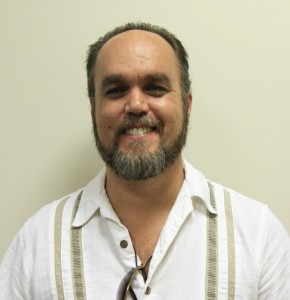 In my experience, prison is a violent and demoralizing environment. If I estimated how often I witnessed overt acts of violence, it would number in the hundreds. If I included threats and other types of aggression and domination short of physical attack, the number would go into the thousands. In every prison, in every state, violence, fear, and hopelessness are constant factors. Often the victims of attack are “natural targets” for those who perpetrate violence.
In my experience, prison is a violent and demoralizing environment. If I estimated how often I witnessed overt acts of violence, it would number in the hundreds. If I included threats and other types of aggression and domination short of physical attack, the number would go into the thousands. In every prison, in every state, violence, fear, and hopelessness are constant factors. Often the victims of attack are “natural targets” for those who perpetrate violence.
Prisoners who are smaller or weaker than average usually suffer disproportionately. This is simply part of the psychology of predators, including some staff. They target those that they believe they can cow or defeat. Kids in adult prison are easy pickings for these guys. Besides the threat of violence the conditions of prison are often bleak and soul crushing. Mental health problems, including suicidal tendencies, are common.
These points are highlighted in Against All Odds: Prison Conditions for Youth Offenders serving Life Without Parole Sentences in the United States, released this month by Human Rights Watch. The report focuses on kids who have received life without parole, a topic reported on frequently by the JJIE, but much of the information can be applied to any juvenile in an adult facility.
The report is the result of six years of research by Human Rights Watch, an international organization that monitors human rights abuses worldwide. It is based on interviews with offenders, family members, corrections officials, teachers, psychologists, social worker, attorneys, prosecutors and judges. Approximately 2,570 people are serving life without parole for crimes, usually homicide, which they committed as juveniles. This report surveyed 500 of them in 11 states and in federal prisons using various methods. Thirty eight states and the federal government currently allow such sentences.
Life without parole is itself denial of human potential, and to apply it to kids is even worse. They, at least, should be recognized as people capable of change and growth. To deny them all opportunities to develop even in confinement and to confine them in a dangerous environment, is adding madness to madness.
The report starts with a quote from the decision in Graham vs. Florida, the case that made juvenile life without parole for non-homicide offenses unconstitutional. “The penalty [of life without parole] forswears altogether the rehabilitative ideal…. For juvenile offenders, who are most in need of and receptive to rehabilitation, the absence of rehabilitative opportunities or treatment makes the disproportionality of the sentence all the more evident.”
The report focuses on several areas. First is rape and sexual assault. Children in adult prison are more likely than adults to be victims of covert and overt attempts to use them for sexual favors. Next is violence and assault. Similarly, they are at higher risk. They are, “twice as likely to be beaten by staff and 50 percent more likely to be attacked with a weapon than minors in juvenile facilities.”
The report also addresses the use of increased isolation for both punishment and protection. Kids suffer this at a higher rate than other prisoners, and it can have long-term consequences for development of social skills and psychological health. In all of these categories it is shown that prisons in the United States fall short in national and international measures of basic physical and mental human rights. Lastly the researchers discuss the lack of educational opportunities given to most kids with this sentence. The most common rationalization for this practice is that the kids will never be released, so are not worthy of resources.
Nowhere do the authors attempt to diminish the seriousness of the crimes committed by these kids. What they ask for is to consider the potential for growth and change that exists in all human beings, but most especially in children. Further, they point out the unconscionable state that these kids live in. To sentence them to die in prison is wrong, but to sentence them to live their days in a hell on earth is more than that. It is evil.
